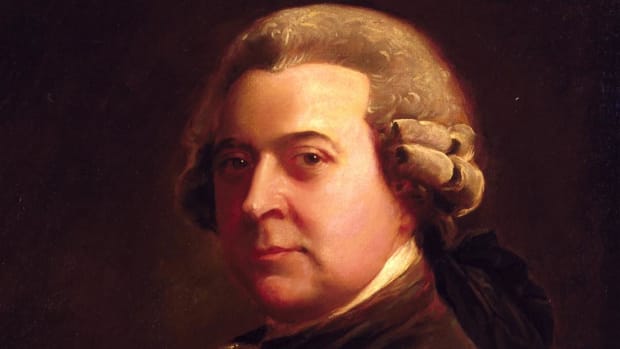About Publications Library Archives
cthl.org

Preserving American Heritage & History

Preserving American Heritage & History


Author: Samuel Adams
Date:1772
Annotation:
As one of the chief organizers of protests against the imperial policies adopted by Britain after the Seven Years War, Samuel Adams (1722-1803) was, in Thomas Jefferson’s words, “truly the man of the Revolution.” A founder of the Sons of Liberty, the Boston-born, Harvard-educated Adams was also a key instigator of protests against the Stamp Act and the Townshend Acts.
Samuel Adams’s animosity to arbitrary royal authority had deep personal roots. To promote economic growth in Massachusetts, his father had helped establish a land bank, which lent paper money backed by real estate. In 1741, wealthy merchants led by Thomas Hutchinson (1711-1780), fearful that the bills would be used to pay debts, called on the royal Massachusetts governor to declare the land bank illegal. When he did, Adams’s father lost tremendous sums of money and never recovered financially.
In 1771, Thomas Hutchinson succeeded Francis Bernard (1712-1779) as governor of Massachusetts. Both Bernard and Hutchinson punished Boston for its resistance to the Townshend Acts by moving the colonial legislature to Cambridge.
Document:
The Session is at length over. Since your Departure I have been, as I expected, almost plagued to Death with the Deputations of Whigs [opponents of royal oppression], & the Advantage the Tories [defenders of royal authority] constantly make of them. The Resolves have finally passed, & even as they now appear, I believe they chagrin him whom they call the Governor & his Adherents. We have since resolved on a Petition & Remonstrance to the King, a copy of which I will send you if you promise not to publish them….
The Governor [Thomas Hutchinson] at the close, sent down a message in the Bernardian tone [the arrogant tone of former Governor Francis Bernard] which I intend to look over. To speak truth plainly, when the Secretary made it I thought it a very indecent thing, in which there appeared a studied affront to the House; and it seemed to me that I myself had a particular share of it. Pray let me know your Sentiments.
As we have been adherents with each other, & I believe ever shall, you have shared with me in the Curses of a Circle of Tories at Cambridge on the Commencement Day; when Confusion to me & my Adherents was given as a Toast, after too many for the reputation of the Company had been already drunk. This will appear to you, the greater Honor done me….
Don’t you think that Mr. [Governor Thomas] Hutchinson aims at irritating this Country in everlastingly introducing his Creatures into all the public Assemblies? Some of the young Gentlemen honored themselves in their performances & particularly Mr. Austin, a promising young Whig, whose Oration you would have [heard] with particular pleasure. “While the Wretch who betrays his Country for the Sake of Places Embodiments & Passions”, but I [rely] no more upon my Memory, least I should unhappily detract from the true spirit & stile of it. May Heaven bless the Lad & preserve him from the Contagion of the World!
Source: Gilder Lehrman Institute